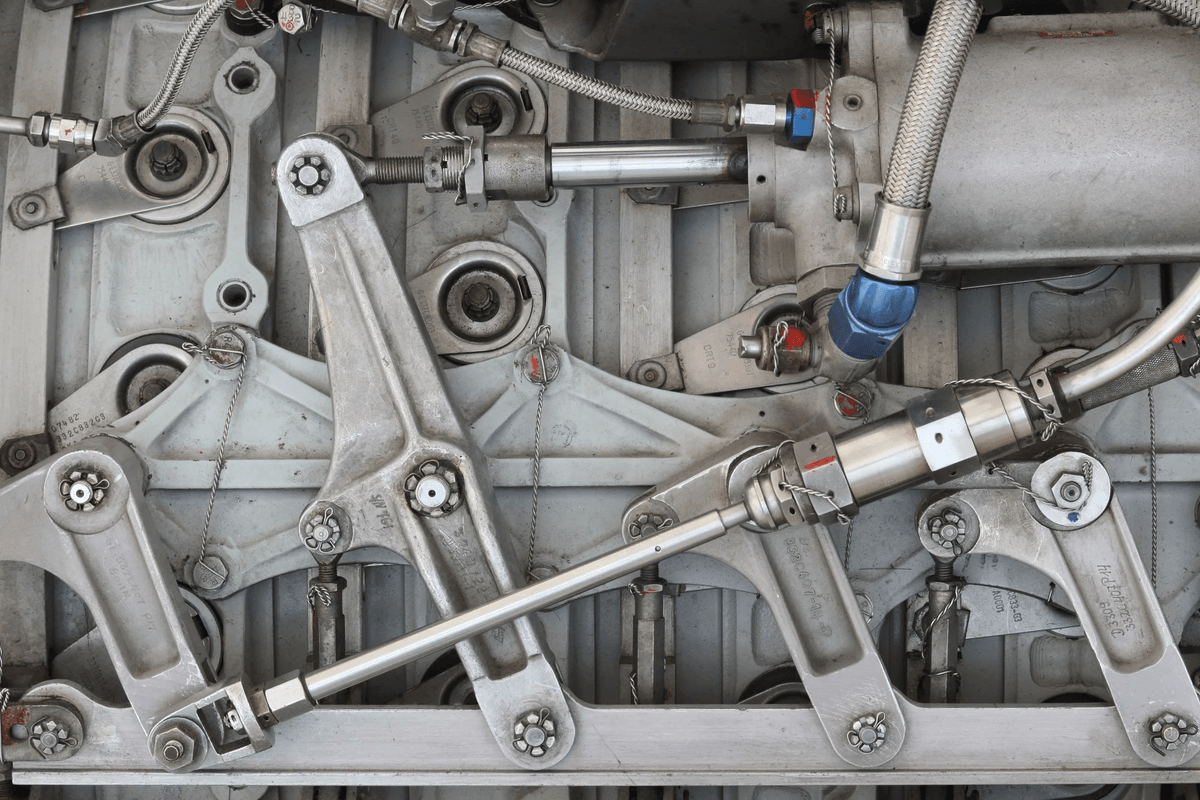
As a crucial component of many industrial systems, hydraulic pumps play a vital role in powering machines, equipment, and processes. When a hydraulic pump fails or becomes inefficient, it can cause significant downtime, lost productivity, and financial losses. That's why timely and effective hydraulic pump repair is essential, especially in a state like New Jersey with a thriving manufacturing industry. In this article, we'll delve into the importance of hydraulic pump repair, common issues that may arise, and the benefits of regular maintenance.
1. Understanding Hydraulic Pumps
Before we dive into the importance of hydraulic pump repair, it's essential to understand what these pumps do. A hydraulic pump is responsible for generating hydraulic fluid pressure, which powers various industrial applications, such as manufacturing machines, construction equipment, and agricultural tools. These pumps work by converting input power, usually through an electric motor or diesel engine, into hydraulic pressure. The hydraulic pressure is then transmitted to hydraulic cylinders, valves, and other components to perform specific tasks, such as lifting, pushing, and pulling.
2. Common Issues with Hydraulic Pumps
Over time, hydraulic pumps can develop issues that affect their performance and efficiency. Some common problems include:
* Leaks in the pump, cylinder, or hoses
* Worn or damaged seals and gaskets
* Corrosion or contamination of the hydraulic fluid
* Overheating or oil degradation
* Clogged or dirty hydraulic filters
* Incorrect or inconsistent piping and pressure settings
These issues can lead to reduced pump performance, oil contamination, or even complete failure. In a high-pressure environment like New Jersey, where manufacturing and industrial activities are ubiquitous, timely hydraulic pump repair is crucial to minimize downtime and ensure optimal system performance.
3. Importance of Hydraulic Pump Repair
Regular hydraulic pump repair is essential for ensuring the reliability, efficiency, and safety of industrial equipment. Some of the critical reasons why hydraulic pump repair is important include:
* Preventing costly downtime: A failed hydraulic pump can shut down production, resulting in significant financial losses. Regular maintenance can help prevent such downtime.
* Improving equipment performance: A well-maintained hydraulic pump ensures optimal system performance, leading to increased productivity and efficiency.
* Reducing maintenance costs: Preventative maintenance can help identify and address issues before they become major problems, reducing maintenance costs in the long run.
* Ensuring safety: Hydraulic pumps play a critical role in safety-critical applications, such as lifting and rigging. Regular maintenance ensures that these systems operate safely and correctly.
4. Benefits of Regular Maintenance
Regular hydraulic pump repair and maintenance offer several benefits, including:
* Improved pump efficiency: The Hydraulic pump repair New Jersey company helps maintain optimal pump performance, reducing energy consumption and costs.
* Extended pump lifespan: Timely maintenance extends the lifespan of the hydraulic pump, reducing the need for premature replacements.
* Better fluid quality: Regular maintenance helps maintain the quality of the hydraulic fluid, reducing the risk of contamination and corrosion.
* Reduced downtime: Preventative maintenance minimizes the risk of unexpected failures, reducing downtime and associated costs.
5. How to Perform Hydraulic Pump Repair
When performing hydraulic pump repair, it's essential to follow a systematic approach to ensure accuracy and efficiency. Here are some general steps to follow:
* Shut down the pump and machinery
* Drain the hydraulic fluid and inspect for contamination or corrosion
* Disassemble the pump and inspect components for wear or damage
* Replace worn or damaged parts
* Reassemble the pump and test it under controlled conditions
* Fill the hydraulic fluid and test the system under load
6. Importance of Proper Installation
Proper installation of hydraulic pumps is critical for ensuring optimal performance and extending pump lifespan. Some key factors to consider include:
* Ensuring correct piping and pressure settings
* Installing the pump in a suitable environment
* Ensuring proper electrical connections and grounding
* Inspecting the pump and system for leaks or damage
7. In-House versus Outsourced Repair
When deciding whether to perform hydraulic pump repair in-house or outsource it to a professional, consider the following factors:
* The complexity of the repair
* The availability of skilled personnel
* The equipment required for the repair
* The time and resources available for the repair
While in-house repair may be suitable for simple issues, outsourcing repairs to professionals can be more cost-effective and efficient for complex problems.
8. Conclusion
In conclusion, hydraulic pump repair is a critical aspect of industrial maintenance in New Jersey and beyond. By understanding common issues, recognizing the importance of regular maintenance, and following proper repair procedures, you can ensure optimal pump performance, reduce downtime, and extend the lifespan of your equipment. Whether you decide to perform repairs in-house or outsource them to professionals, it's essential to prioritize hydraulic pump repair to maintain the reliability and efficiency of your industrial systems.